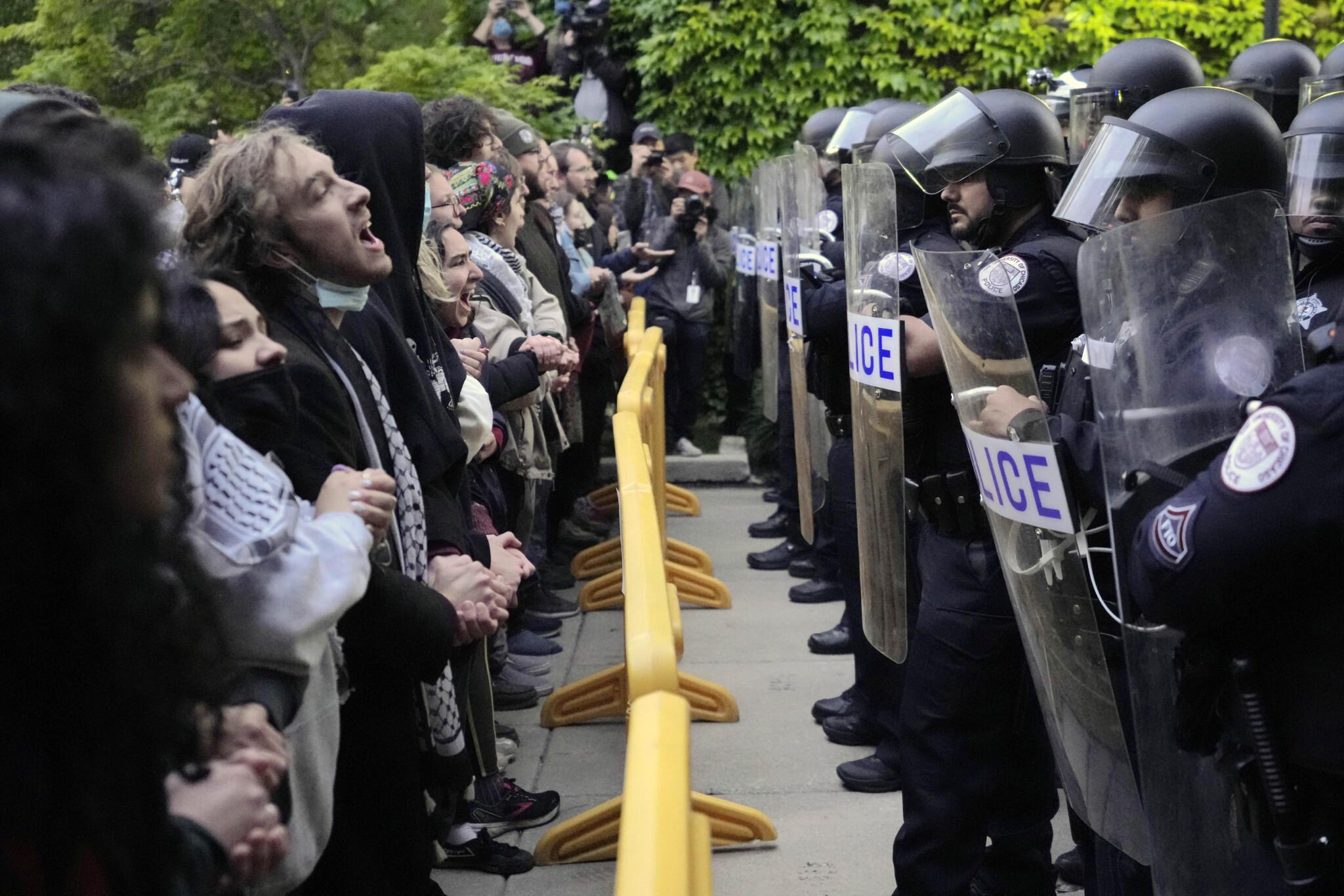“The children now love luxury, they have bad manners, contempt for authority, they show disrespect for elders and love chatter in place of exercise. Children are now tyrants, not the servants of their households. They no longer rise when elders enter the room. They contradict their parents, chatter before company, gobble up dainties at the table, cross their legs, and tyrannize their teachers.”
This old quote, often misattributed to Socrates, accurately describes the attitude of several young people today—with members of generation Z, millennials, and generation alpha increasingly accused of being entitled and of lacking respect for authority.
“They see themselves as equals and peers to their elders, parents and teachers. They feel comfortable and are even brazen about inserting their opinions into the conversation. They often ‘school’ adults on the correct socially conscious words, phrase, and approaches to the world,” reads an article from market and consumer research firm Greenbook, titled “Ten things you should know about respect in the Gen Z world.”
This attitude seems most prevalent among youth on the Left, and has been far from harmless. It has made for hostile situations on college and university campuses, as well as in workplaces.
For Greg Lukianoff, an American lawyer, bestselling author, and president and CEO of the Foundation for Individual Rights and Expression, an organization that monitors campus culture, educational institutions and their “woke” ideology bears the blame.
Entitled and disrespectful students on campuses
College and university campuses have served as ground zero for youth displaying their entitlement and contempt for authority.
This summer especially served as a notable showcase, when far-Left, anti-Israel students at North American colleges and universities set up encampments to demand their institutions divest from the Jewish state. In some cases, they also demanded free tuition and free housing.
When they didn’t get their way, things got ugly.
At McGill University, activists attempted to barricade themselves in the administration building and held a protest outside a senior administrator’s home. A student also made “spitting motions” at faculty members during convocation. At the University of Ottawa, students interrupted a conference and stated, “We can show the university that we won’t allow any conferences to occur here until divestment happens.”
At Columbia University in New York, students occupied an academic building and then demanded that the university provide them with food and water, claiming it was “basic humanitarian aid.” When police cleared the encampment, law students wrote a letter calling for exams to be cancelled saying, “many are unwell at this time and cannot study or concentrate” amidst police “brutalizing our students.”
Columbia protest spokesperson claims that Ivy League students, in the middle of Manhattan, need “basic humanitarian aid” in the form of granola bars and bottled water.
— Joe Roberts (@Joe_Roberts01) April 30, 2024
I’m serious. You can’t make this up.
Totally and utterly unserious. pic.twitter.com/TkrhEqqXxO
To recap, groups of students felt they were entitled to dictate their university’s financial investments, and when they did not get their way, they occupied campus, and in some cases, also harassed university leadership—including at their homes—and vandalized university property, all while expecting universities to provide them with food and water during their protest, and postpone exams.
If this is not the definition of entitlement and an egregious display of disrespect for figures of authority, then I don’t know what is.
And to be clear, today’s left-wing students are different from the activists of the 1960s.
“The biggest difference between these two groups is that the activists of the ‘60s wanted less oversight,” Lukianoff explained in an interview with The Hub. “They wanted power to have less power over them, they wanted to be treated like adults, and they didn’t want the administrators to act like they were their parents.”
Lukianoff added that left-wing students today “want power [i.e. universities] to have more power because they somehow think that it will be used to the advantage of things they care about, and weirdest of all, used to the advantage of the powerless.”
Individuals who took part in protests of the 1960s have also come out to say that what took place this summer was different.
In his books The Coddling of the American Mind and The Canceling of the American Mind, Lukianoff highlights multiple other examples of epistemic arrogance amongst young people today.
Justice Kyle Duncan, a U.S. appeals judge appointed by President Donald Trump, was met with a hostile reception from left-wing students when he came to give a talk at Stanford Law School. Students shouted him down, with one allegedly screaming, “We hope your daughters get raped!” When the school later apologized to Duncan for the disruptions, students held another protest, and put up signs stating “Counter speech is free speech.”
In the workplace
This entitled and disrespectful attitude has also spilled into workplaces.
According to a 2024 Deloitte survey, 61 percent of generation Z believe they “have the power to drive change within their organizations.”
At Penguin Random House Canada, employees were up in arms when the publisher announced they would be publishing Canadian psychologist Jordan Peterson’s Beyond Order: 12 More Rules for Life book. Employees leaked their dissent to the media, with one junior employee saying they would have organized a walkout if they had known earlier. At a meeting with Penguin executives, disgruntled employees reportedly cried “about how Jordan Peterson has affected their lives.”
A similar situation took place in the U.S. at publisher Simon & Schuster, where employees demanded that their employer cancel the publication of former Vice President Mike Pence’s book So Help Me God, claiming that publishing the book would be “legitimising bigotry.” Some employees were hostile towards CEO Jonathan Karp during a resulting town hall.
At Google, 50 employees reportedly staged a 10-hour sit-in in executive offices because their company’s leadership would not divest from Israel. Google has since fired those employees.
🚨 @NoTechApartheid activists have taken over Google Cloud CEO Thomas Kurian’s office at the Google headquarters in Sunnyvale, CA to call on the company to drop Project Nimbus, a cloud computing project of the IDF.
— Talia Jane ❤️🔥 (@taliaotg) April 16, 2024
Simultaneously in NYC, Googlers have taken over the lobby: pic.twitter.com/m7YnBM0NyB
Educational institutions bear a fair share of the blame
“This is something that higher-ed has created for itself, and in many ways, quite intentionally,” Lukianoff said. “Higher-ed and K-12—where all teachers have largely [gone to school themselves] been educated in higher ed—make this attitude of epistemic arrogance way worse.”
In The Coddling of the American Mind, Lukianoff and co-author Jonathan Haidt explain that young people have been taught three great untruths: what doesn’t kill you makes you weaker, always trust your feelings, and life is a battle between good people and evil people.
These ideas foster a worldview where individuals are either oppressors or oppressed, where feelings take precedence over facts, and where people must be protected from anything that makes them feel “unsafe”—all staples of the modern progressive worldview.
“They think of it as a kind of uncompromising moral vision,” Lukianoff stated. “If you’re dead certain you are right and you’re on the right side of history, then you are justified in showing as much disrespect to whomever and shutting things down.”
Too many educational institutions have also prioritized activist mentalities over academic pursuits, all while discarding the value of free speech.
Educational institutions have also contributed to the entitlement and disrespect phenomena by giving in, and even abetting or encouraging the students they’ve indoctrinated when they act in an entitled and disrespectful way.
In Canada, several universities attempted to negotiate with the encampment protesters, with some deciding to offer students who took part in them amnesty from academic sanctions. The University of Windsor went as far as to capitulate to their demands. Several professors also actively participated in the anti-Israel encampments.
In the Stanford case mentioned earlier, the associate dean for diversity, equity and inclusion, Tirien Steinbach, intervened during Duncan’s speech to scold him herself. She later resigned from her position over her conduct.
“When you have a long history of, overwhelmingly, protesters on the Left who want to shut down a speech, and they get at most a slap on the wrist if they do it, or even sometimes get praised by the administration, that’s kind of indistinguishable from it being a formal part of the university system,” Lukianoff said.
“What gets rewarded gets repeated,” he added.

Pro-Palestinian demonstrators, at right, attempt to keep attendees from getting through at the Shrine Auditorium where a commencement ceremony for graduates from Pomona College was being held, Sunday, May 12, 2024, in Los Angeles. Ryan Sun/AP Photo.
Time for a reckoning?
It’s time for a reckoning, unless we want to raise another generation of brats.
Of course, not all members of generation Z, or millennials or, generation alpha are entitled and disrespectful left-wing activists. Only a small minority of students actively took part in encampment protests. A 2021 Morning Consult poll found that just eight percent of generation Z have a positive view of cancel culture. Furthermore, not all young employees believe they have the “power to change” their workplace—and even for those who do, not all want to do so in a revolutionary way.
There are also other factors behind entitlement and disrespect for authority among young people, like parents failing to discipline their kids.
But the young people who are “woke,” entitled, and disrespectful have become problematic enough to warrant action on the part of educational institutions.
Colleges and universities need to stop teaching toxic ideologies to their students, grow a spine, and enforce their rules against those who shout down speakers, harass teachers or fellow peers for having views they subjectively deem “harmful,” occupy university space, or vandalize property.
And if administrators fail to do so, then they must be held accountable.
“I think anytime that there is a shout down, or an attempt to get a professor fired for their opinion, or to get a student expelled for their opinion, there should be an independent investigation to figure out, did administrators help?” said Lukianoff. “Did administrators do anything to encourage the things that are a threat?”
He added that if school administrators, including mid-level administrators, are found to be complicit in abetting problematic student behaviour, they should be fired.
“Those people have to go,” Lukianoff said.
I couldn’t agree more.








